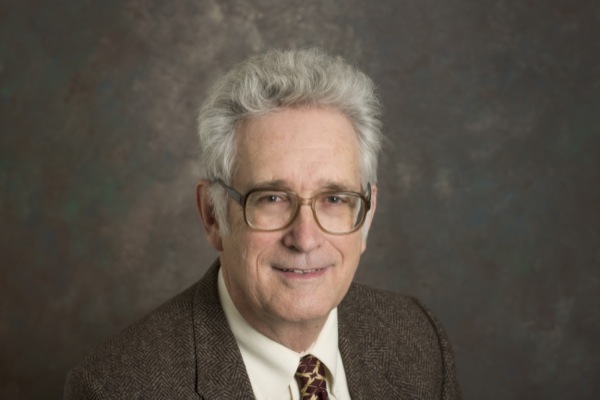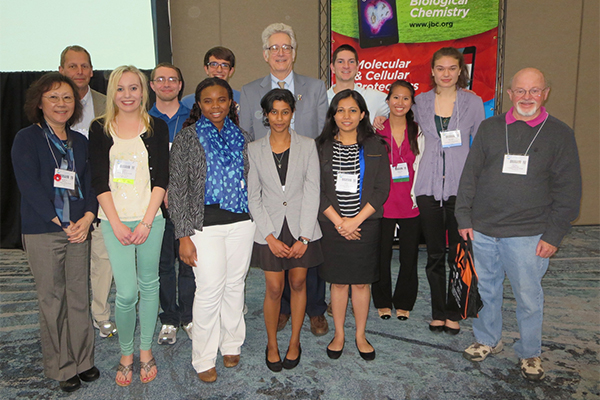


Consummate teacher
Chemistry professor receives education award from professional society
12 p.m., May 19, 2014--About 20 years ago, Hal White had one of those “aha moments” at a lunch-time session on teaching effectiveness.
“I realized that the problems faced by teachers are discipline independent,” says White, professor in the Department of Chemistry and Biochemistry at the University of Delaware. “It doesn’t matter whether we’re teaching chemistry or English or sociology, we all face the same challenges in getting our students to learn.”
Honors Stories
National Medal of Science
Warren Award
White was fascinated by that challenge, and he soon became known as much for his expertise in applying problem-based learning (PBL) as he was for his research on vitamin-binding proteins.
White recently added to his impressive list of teaching awards when the American Society for Biochemistry and Molecular Biology (ASBMB) recognized him with its Education Award earlier this month “in recognition of contributions to biochemistry and molecular biology through teaching, leadership, education research, mentoring, and public enlightenment.”
“Hal is a consummate teacher whose influence on his students goes well beyond the classroom,” said Judith Voet of Swarthmore College and Donald Voet of the University of Pennsylvania in their nomination of White for the award. “Indeed, many of his undergraduate students report that he has directly affected their career choices.”
Some of White’s success is due to his understanding of the gap that often exists between teaching and learning. In one of his favorite cartoons, a boy says to his friend, “I taught my dog to whistle.”
When the dog fails to carry out the command, the second kid says, “I thought you taught him to whistle.”
“I said I taught him to whistle,” the dog’s owner responds. “I didn’t say he learned how.”
To White, PBL is a way of getting students to learn how to learn.
“With PBL, the focus is less on the content and more on how to approach a problem because that’s how it is in real life,” he says. “The professor’s not there any more — students have to figure things out for themselves.”
White has also become a realist, comparing PBL to Swiss cheese.
“I know it has holes in it, but it’s better than American cheese,” he says. “I’ve changed my approach to where I don’t worry about covering everything but rather focus on covering well what I do cover.”
White has also been a mentor to dozens of undergraduate students through his position as director of the Howard Hughes Medical Institute Science Education and Research Training program at UD for the past 16 years.
Every year, he and several other faculty members accompany a group of undergraduates to Experimental Biology meetings to present their research. Since 2001, UD students have received more awards in this competition than those from any other institution.
White plans to retire in January 2015, and he recently learned that at least one of his legacies will live on.
Several years ago, he developed an introductory biochemistry course organized in an unorthodox way: The students trace the progression of science over time by reading a series of scientific papers on a specific theme — for example, sickle cell anemia. When possible, the authors of seminal papers are brought into the classroom to talk to the students.
“I was just getting used to the idea that the course might die when I leave here,” White says. “But I’m thrilled that we have a new faculty member who is continuing it, using her own interests and themes as the foundation.”
White knows how lucky he is to have been able to craft a career around pedagogy in an environment that prizes research.
“Being a full professor before I made this transition was critical,” he says. “I’ve been able to use the currency of research to provide the credibility for what I’m doing and to enable others to respect me for it.”
White comes from a family of teachers, and he came to his faculty position at UD knowing that in the sciences, people are expected to be teachers, but they’re not necessarily trained to be teachers.
Hal White has trained himself to be a teacher.
Article by Diane Kukich
Photos by Kathy F. Atkinson and courtesy of Hal White









